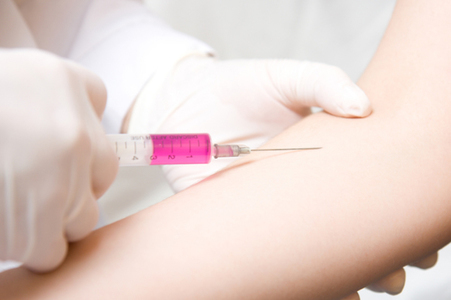Controversy surrounds the HPV vaccines, Gardasil and Cervarix. Since their release, the vaccine industry, the media and medical societies have touted the safety and success of the vaccines in preventing or reducing HPV viral infections and thus, in preventing cervical cancer. Patient groups, mom’s of vaccine injured girls and anti-vaccine groups on the other hand, argue loudly that the rate and severity of serious adverse events are seriously under-reported by industry and the proof that these vaccines prevent or reduce cervical cancer is lacking. Even one of the lead developers of the vaccine, Diane Harper has come out against it.
Somewhere in the middle is the Vaccine Adverse Event Registry (VAERS), where only 1-10% of a very limited range adverse events are reported. Even with the limited reporting to VAERS, the severity and frequency of adverse events is growing and should not be ignored. Data collected from VAERS indicates a serious adverse event rate 4.3 per 100,000 doses of Gardasil. Serious adverse events are those that cause death or are life threatening, require hospitalization, cause persistent disability or incapacity and/or require medical treatment to prevent permanent impairment or damage. This is compared to a risk of cervical cancer of 7.9 per 100,000 and death from cervical cancer at 2.4 per 100,0000 cases in the US.
Considering the severity of the reported adverse reactions and the noted adverse events reporting rate of less than 10% of all cases, having more credible and complete data about true severity and prevalence of said reactions as well as more detailed data about who is at risk for those adverse events is critical.
As a parent, a researcher and the founder of Hormones MatterTM, I decided to do something about the lack of data in this and other areas of women’s health. As part of the Real Women, Real Data series, The Gardasil Cervarix HPV Vaccine Survey was launched In May of 2013. It is a comprehensive, online study of Gardasil and Cervarix side-effects and adverse events. The study will run until a study sample of 1000 is reached. The goal is to provide a more accurate and unbiased look at the rate, range and severity of side-effects and adverse events associated with the HPV vaccines, Gardasil and Cervarix.
Take a survey. Share a survey. Suggest a survey.
We need your help to gather these data. Please take this survey, if have had either vaccine – whether you experienced any side-effects or not. Understanding who is at risk and who is not, is very important. Share the survey link with your friends, sisters, colleagues and anyone you know who has been given the HPV vaccine. Please post it on your Facebook pages and share on Twitter, Linkedin, Reddit and other social media. Write about and re-post this link on your blogs. Anything you can do to spread the word is appreciated. We will need at least a thousand women to find the connections.
It is up to us to protect our daughters. Understanding this vaccine is one way to do that.
Purpose the Gardasil – Cervarix Survey
Women and their physicians need more data about the side-effects of the HPV vaccines, Gardasil and Cervarix. There is a lack of data about who is at risk for adverse events and whether certain pre-existing conditions increase one’s risk for an adverse event. There is also a lack of data about the long term health effects of these vaccines. The purpose of this survey is to fill that data void; to learn more about the risks for and nature of adverse events associated with each of the HPV vaccines, Gardasil and Cervarix.
Who Should Take the Gardasil Cervarix HPV Vaccine Survey?
Girls or women who have been given either vaccine or the parents or other family members of young girls given the vaccine.
We are not currently collecting data on the adverse reactions for men and boys, but intend to launch a separate survey to tackle that population.
How Long Does the Gardasil Cervarix HPV Vaccine Survey Take?
This is a long survey. We felt it was important to assess the full depth, breadth, onset and severity of adverse reactions in order to give parents and women the data they need to make informed medical decisions. This necessitated a longer than desired survey. We estimate it will take approximately 20-30 minutes to complete the survey. We hope, given what is at risk, survey respondents will take the time to complete the entire survey.
Is the Survey Anonymous and Secure?
Yes. We do not collect personal identifying information and the survey is hosted with SSL encryption using a verisign certificate Version 3, 128 bit encryption.
How Will the Data be Used?
To inform future research and women’s health decision-making.
Who is Conducting this Research?
Researchers from LucineTM, Hormones MatterTM. For more information on Lucine, click here. For more information about Hormones MatterTM , click here.
What Can I Do To Help?
Our organization is completely unfunded at this juncture and we rely entirely on crowdsourcing and volunteers to conduct the research and produce quality health education materials for the public. Get involved and help us prove that hormones matter and that women’s health data matter. Become an advocate, spread the word about our site, our research and our mission. Join our team. Write for us, partner with us, help us grow. For more information contact us at: info@hormonesmatter.com.
To take the Gardasil Cervarix HPV Vaccine Survey, click here.
To take one of our other Real Women. Real Data.TM surveys, click here.
To sign up for our newsletter and receive weekly updates on the latest research news, click here.
Thank you in advance for your help.















